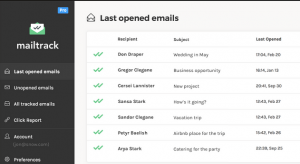
How often does something like this happen in your organization…?
A manager needs to complete a small project with a tight deadline, but he doesn’t have the time nor staff to get it done. So he contacts a qualified friend who can complete the project quickly. In order to start him as soon as possible, the manager brings his friend onboard as a freelancer. For ease, he’s paid from the marketing budget.
To procurement, having employees bypass freelancer hiring procedures is a nightmare. Because you don’t know who they’re hiring, what rate they’re paying, or the freelancer’s qualifications.
Even scarier, you don’t know if they’re classified properly. Because most employees assume freelancers are 1099s. As you probably know, not all contingent workers are classified as independent contractors.
But to the employee, it’s sometimes easier to go rogue by directly hiring a friend or freelancer they know. For many company employees, writing up a project description, sending it through the requisition process, hoping it gets filled on time, then worrying if they have the right person is seen as a stressful and time-consuming process.
Losing Control
Knowing that even one or two employees have gone rogue with freelancer hiring should cause concern. What’s even more worrying are all of the other rogue hires you don’t know about. It can quickly undermine oversight of your contingent workforce usage, increase your risk, and skyrocket costs.
Simply reminding employees to follow the rules probably won’t change things much—especially if they think the procedures are inconvenient.
However, there is a way to harness contingent workforce hiring under one umbrella, track key metrics, and monitor spending. At the same time, you can also make the hiring process so efficient employees will prefer following company procedures rather than going rogue.
Getting Employees to Voluntarily Follow the Rules
Solutions like Freelancer Management Systems (FMS) encourage employees to follow established hiring procedures because an FMS can get the contract help they need faster, and with less effort.
By using an FMS, all contingent workers are hired under the same umbrella. As a result, you can handle and track freelancer usage from a single platform. End-to-end solutions like Upwork Enterprise also streamline administrative tasks, so you can:
- Get hard-to-find, high-demand talent
- Onboard freelancers within three days—some as quickly as 24 hours
- Communicate with freelancers without juggling different time zones
- Pay freelancers immediately in over 180 countries
- Pull reports and check milestones, payments, and other metrics
What’s more, many FMS solutions offer a worker classification service. This provides a stress-free way to maintain compliance, no matter where your freelancers are located.
Erase Frustrations and Excuses
As mentioned earlier, employees often bypass set hiring procedures because they think requisitions take too long to fill, and they worry about finding the right talent. Full-service FMS platforms remove these two excuses by connecting you to their huge pool of high-quality freelancers who span a vast range of specialized skills and experience levels.
This makes it a lot easier to find the right talent and dramatically shortens their onboarding time. So projects can get started and turned around faster.
What’s more, you can save up to 30% over typical agency rates for the same quality talent. Some FMS platforms let you compare rates and ratings of several freelancers at a glance, making it easier to choose the best talent for your budget and timeline.
The bottom line is most of us want to get our work done with the least amount of friction as possible. An FMS probably won’t completely eliminate rogue freelancer hiring, but it can reduce it significantly.
Everyone wins with an FMS: Employees get their work done with less stress, and you can oversee and track your entire contingent workforce usage from one dashboard. You also enjoy the added bonus of saving time, money, and reducing company risk. Who wouldn’t want all that?
Business & Finance Articles on Business 2 Community(97)
Report Post







